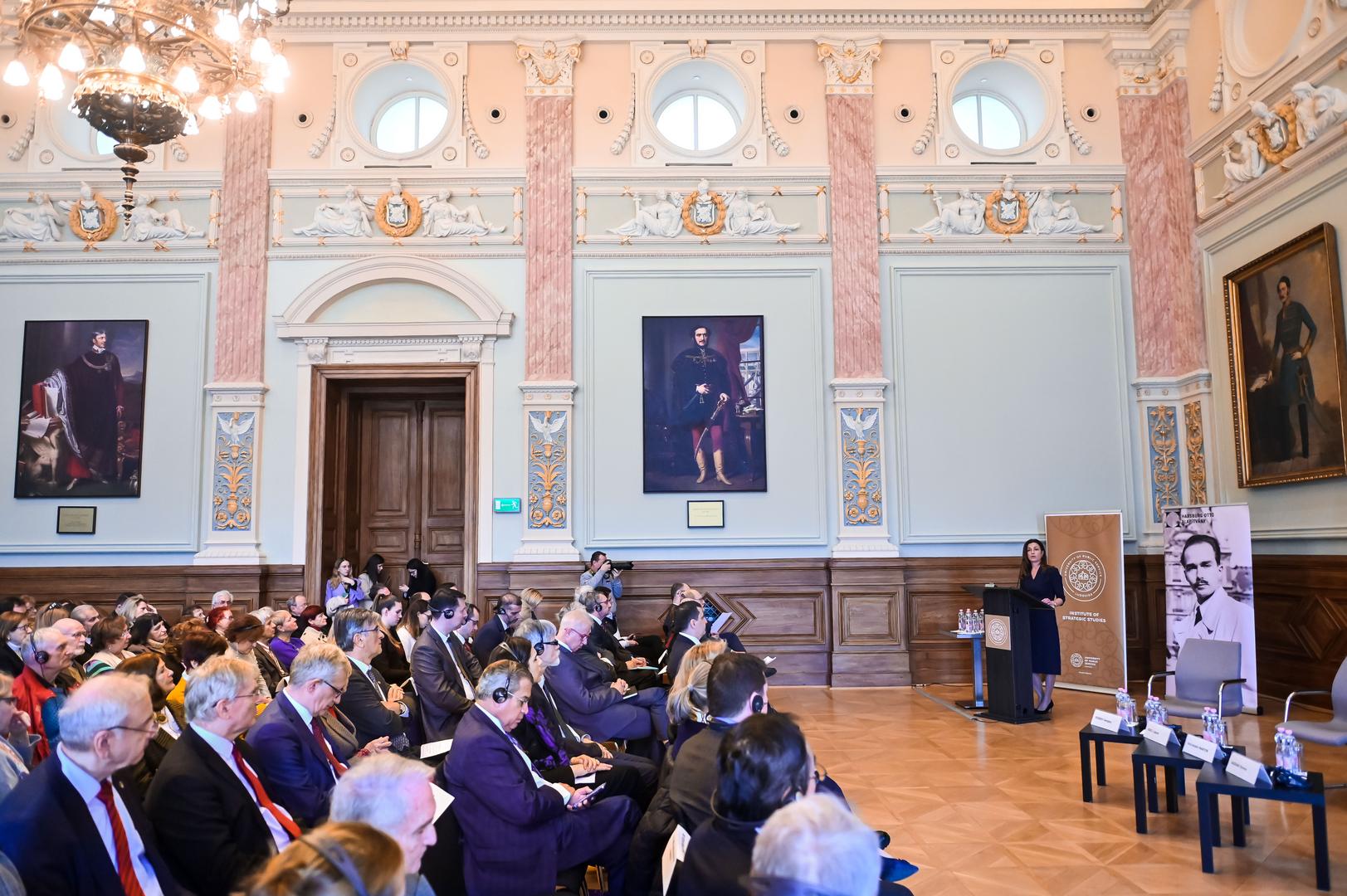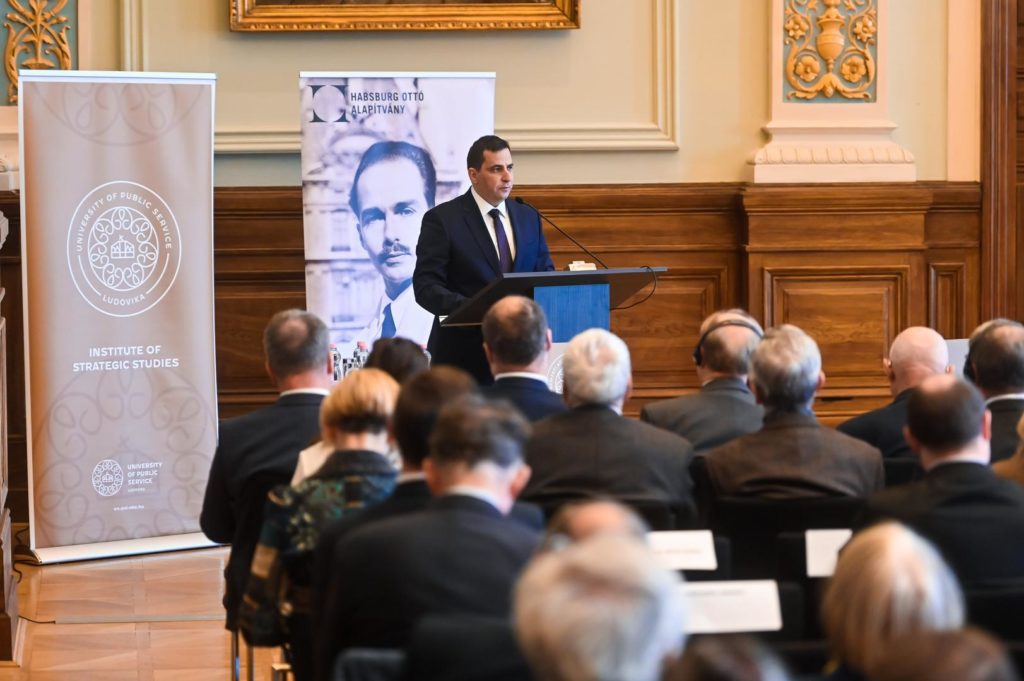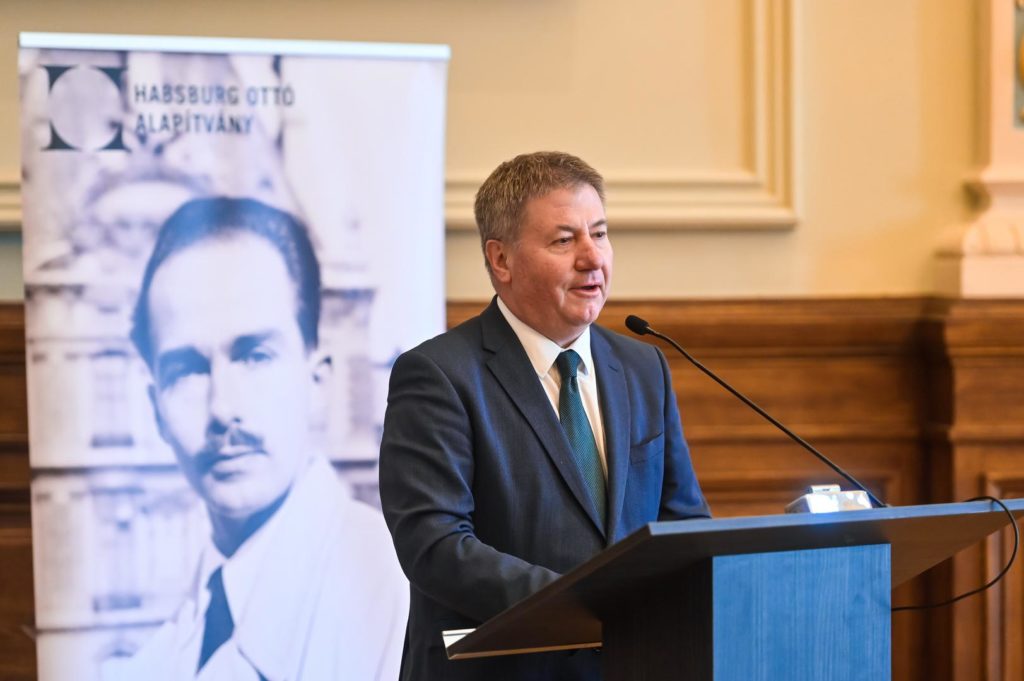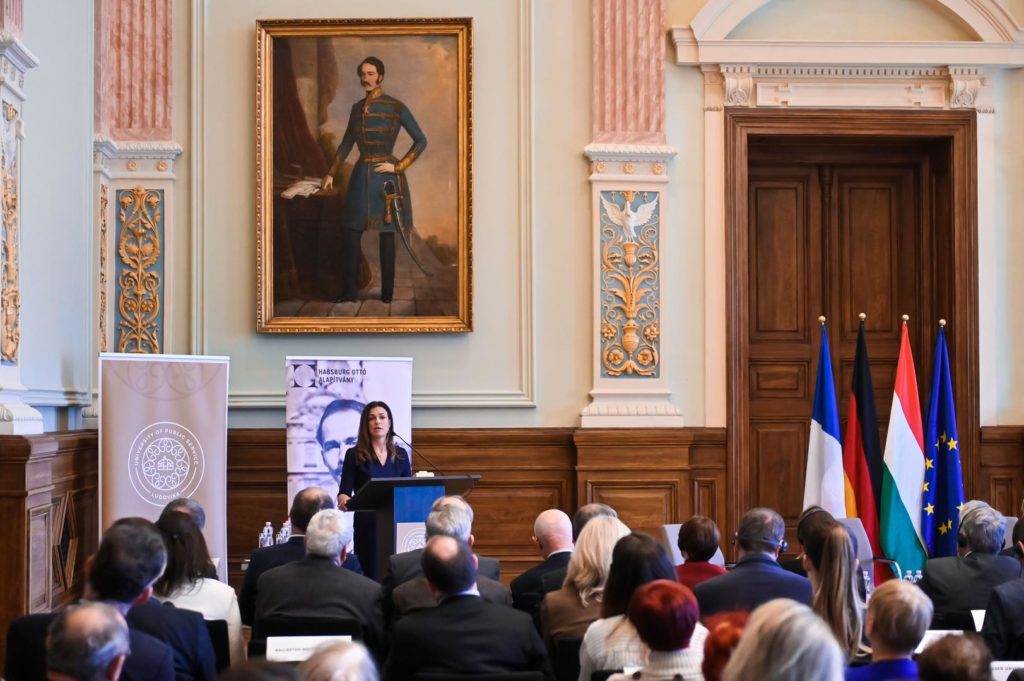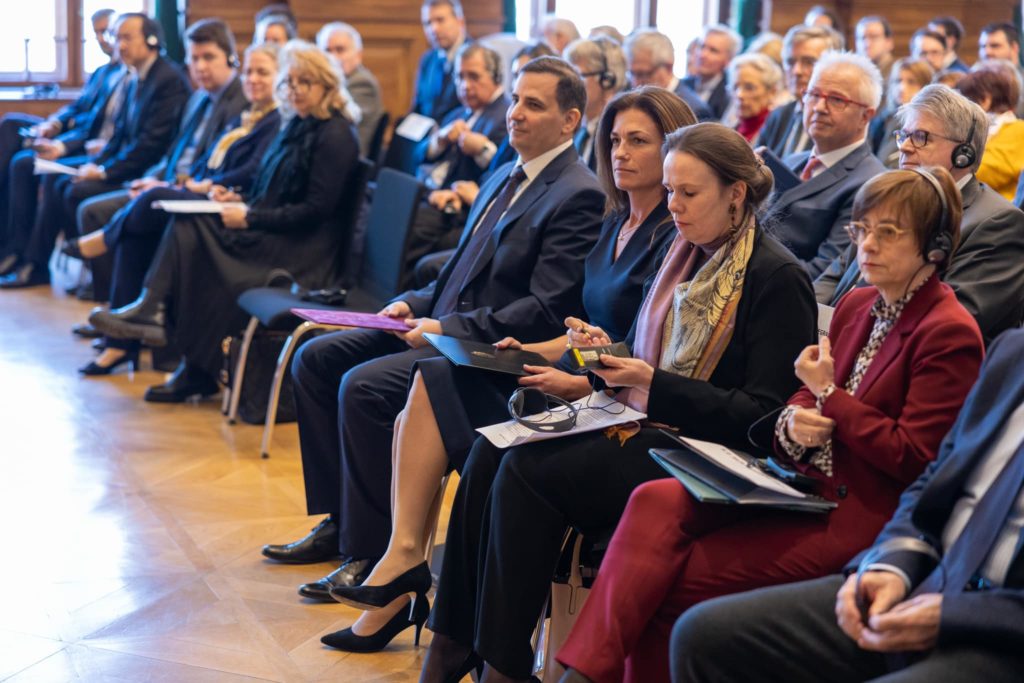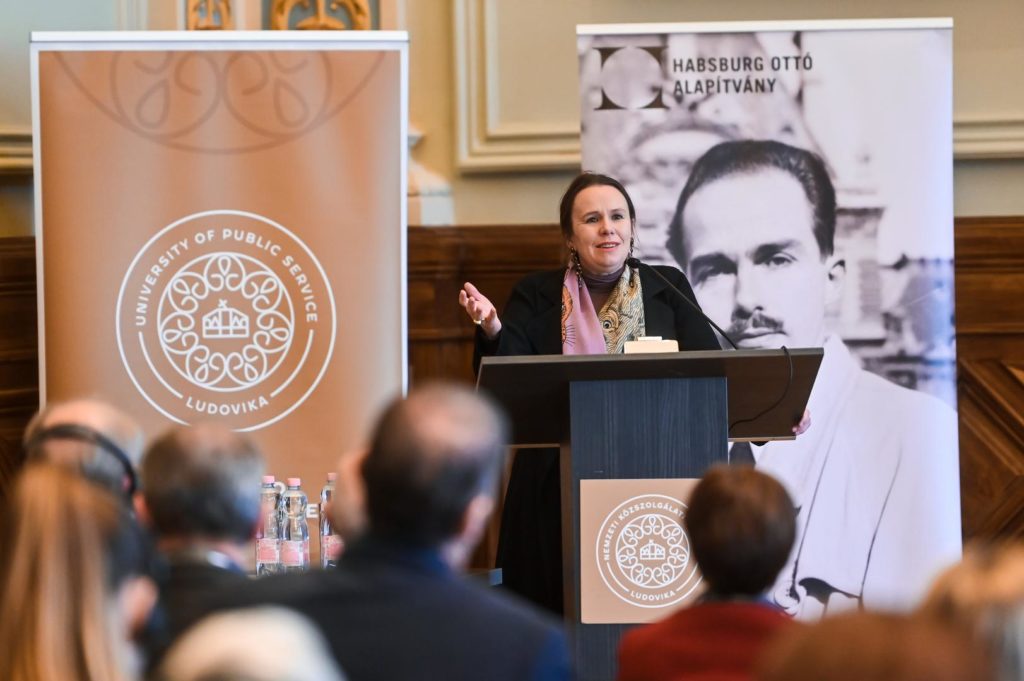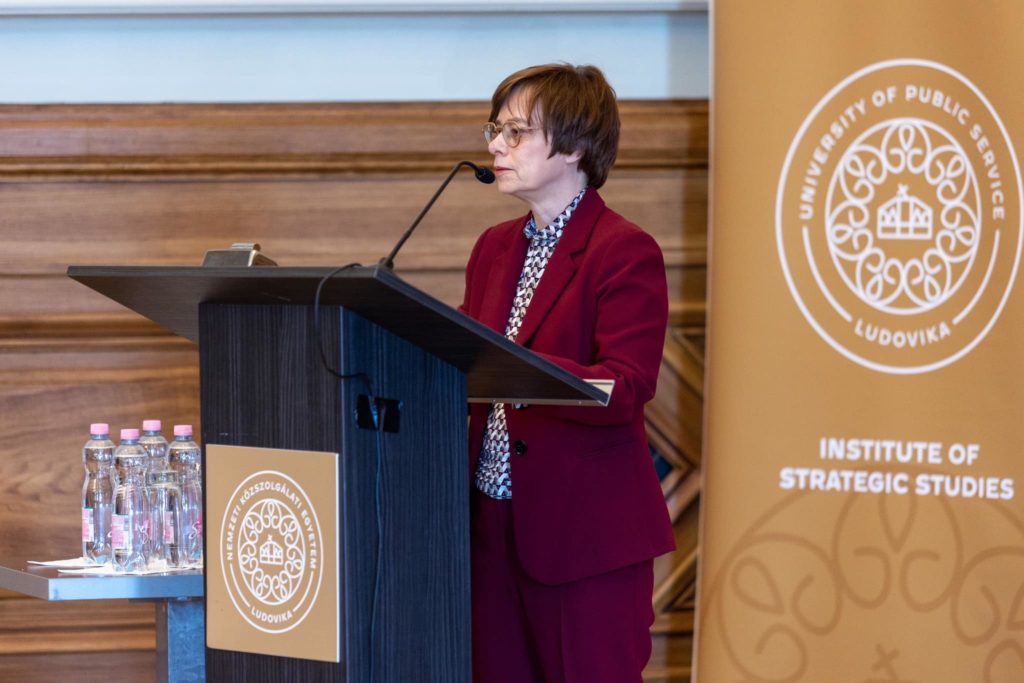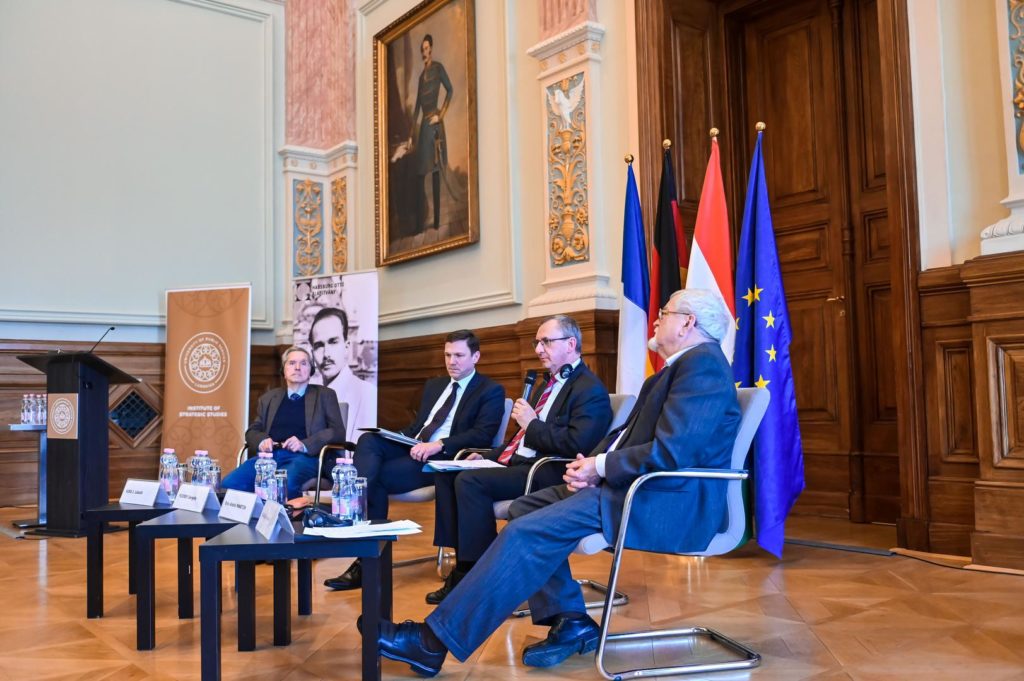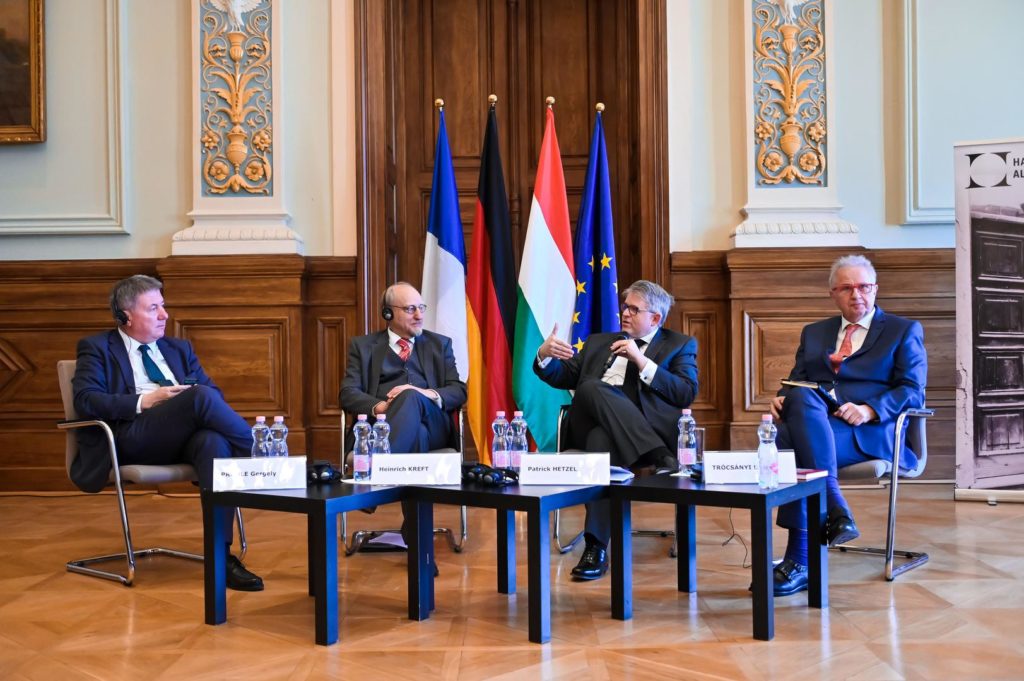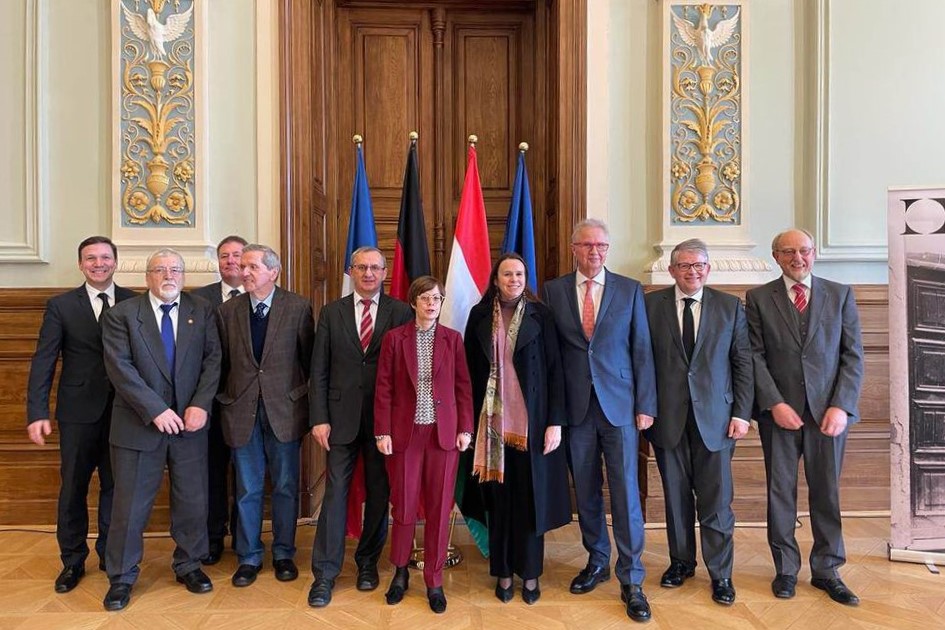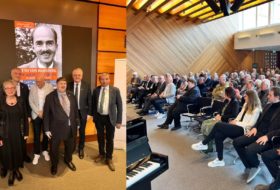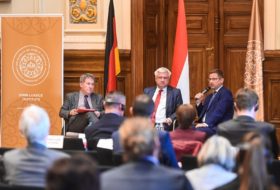On 22 January 1963, a historic agreement was reached between the President of France and the Chancellor of the Federal Republic of Germany. With the Élysée Treaty, Charles de Gaulle and Konrad Adenauer made a commitment that the leaders of their countries – and in time not only they but also the political, economic and cultural leaders – would engage in a permanent dialogue in order to put behind them once and for all the enmity that had defined the history of Europe for centuries.
In his introduction, Gergely Prőhle, Director of our Foundation, in addition to recalling the past, asked the participants of the conference to draw lessons from the decision of 60 years ago that are valid today, especially those that can help us to define Europe in the 21st century.
The Rector of the University of Public Service spoke in detail about the institution’s relations with French and German universities, research institutes and the European institutional system. In light of this, Gergely Deli believes that young people building their careers in the European and Hungarian civil service will be committed to the common values. He concluded his speech with Adenauer’s words: “Looking into the past only makes sense if it serves the future.”
Judit Varga, Minister of Justice, called the Élysée Treaty a mould-breaker and saw its significance in the Cold War era in that it offered an opportunity for cooperation and set an example for closer integration. Its message is that building a strong Europe requires nations with strong identities, which are connected by a thousand threads to the members, bodies and institutions of other countries and nations – and they do so in a spirit of mutual respect. The Minister expressed her hope that the war in our neighbourhood will not escalate and that the ceasefire negotiations – which the Hungarian political leadership has been calling for in all existing forums – will take place as soon as possible and that peace will be achieved.
The French Ambassador to Budapest drew a parallel between the years after the Second World War and the present. According to Claire Legras, both periods mark the dawn of a new era in which a shift in the balance of power is forcing and has forced Europeans to find a common response and a shared vision. The sense of security of the 1990s is now behind us, and EU policy faces many threats. The shock of war has raised questions about the unity of defence policy, and there is a reform of EU decision-making on the horizon. The question is what form this will take. The French diplomat is optimistic: German-French cooperation has perhaps never been so harmonious, she noted.
According to Julia Gross, Ambassador of Germany, the significance of the 60-year-old agreement is that it created an unbreakable bond of destiny between the two nations and has since created a palpable openness towards each other. This characterised the recent joint Franco-German ministerial meeting, where all the burning issues – climate protection, European security policy, digital sovereignty, strengthening the energy sector and democracy, the war between Russia and Ukraine, and China’s economic rise – were discussed. Gross compared the European Union to a well-functioning engine that, while not always humming pleasantly, runs smoothly, and its operating temperature does not allow the political climate to cool down alarmingly.
László J. Kiss, Professor Emeritus of the Corvinus University of Budapest and Ferenc Gazdag, Professor Emeritus of the University of Public Service, put the birth of the treaty in a historical context. Eric-André Martin from the French Institute of International Relations said that the modalities followed in 1963 are still valid today but with a broader horizon. The challenges of our time can no longer be tackled by a consensus between two countries: the threat of marginalisation to Europe can only be avoided by involving the whole of the Union. Alsace-born Patrik Hetzel, a Member of the French National Assembly, illustrated the complexity of identity and belonging through the personal stories of his family, recalling the relief that came with the agreement in his homeland. Heinrich Kreft, Head of Department at Andrássy University, recalled that there were already efforts for rapprochement between the two countries in the 1920s and that Luxembourg was also involved in these efforts among a small circle of intellectuals.
The panel discussion was closed by the reflections of László Trócsányi. The Hungarian MEP, former Minister of Justice and diplomat, drew attention to the different constitutional nature of France and Germany and stressed the decisive role that the personality of individual politicians can play in international relations. However the ‘meeting of styles’ has played out in the past; the most critical question is what vision the two nations that made history 60 years ago will set for the continent as a whole in 2023.
Photos by Dénes Szilágyi
